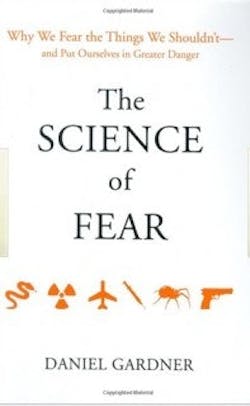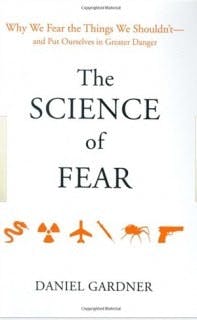Several of my friends recommended a book to me, so I took it out of the library yesterday. It is The Science of Fear by Daniel Gardner. The "dekhead" on the book is, "Why We Fear the Things We Shouldn't - and Put Ourselves in Greater Danger." Gardner's thesis is that modern psychological research appears to show that we really have two minds: a rational mind that does analysis and a reactive mind that we've inherited from our prehistoric ancestors. He presents significant amounts of research to explain why we do things that don't make analytical sense. He points out that the classic example of this is the large numbers of people, after 9-11-2001 who refused to fly for over a year. This led to almost the same number of deaths as the World Trade Center itself, this time, though, from automobile accidents. Yet somehow, this was acceptable, while the WTC attack was not. Not logical. That's what Gardner tries to explain.
Gardner's book is fascinating, and very hard to put down...I recommend it highly.
About the Author
waltboyes
waltboyes
Sign up for our eNewsletters
Get the latest news and updates



